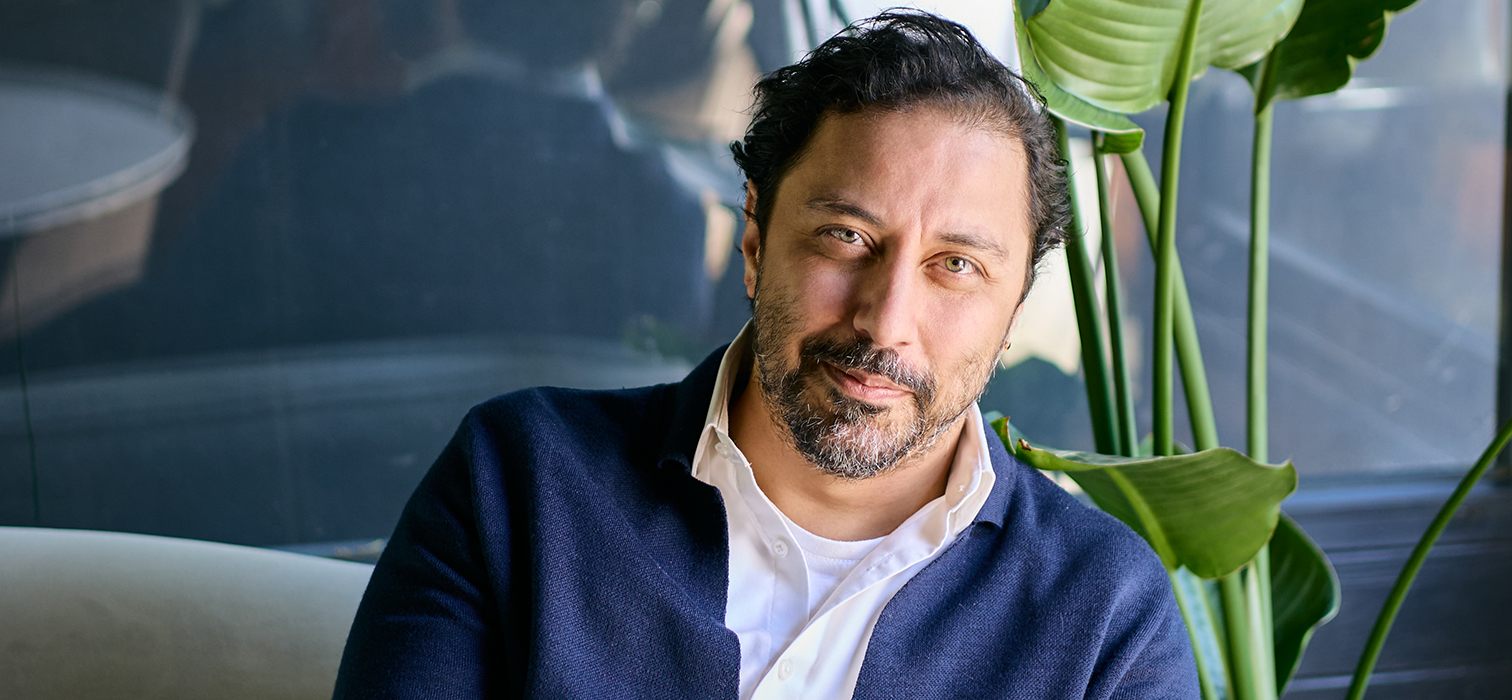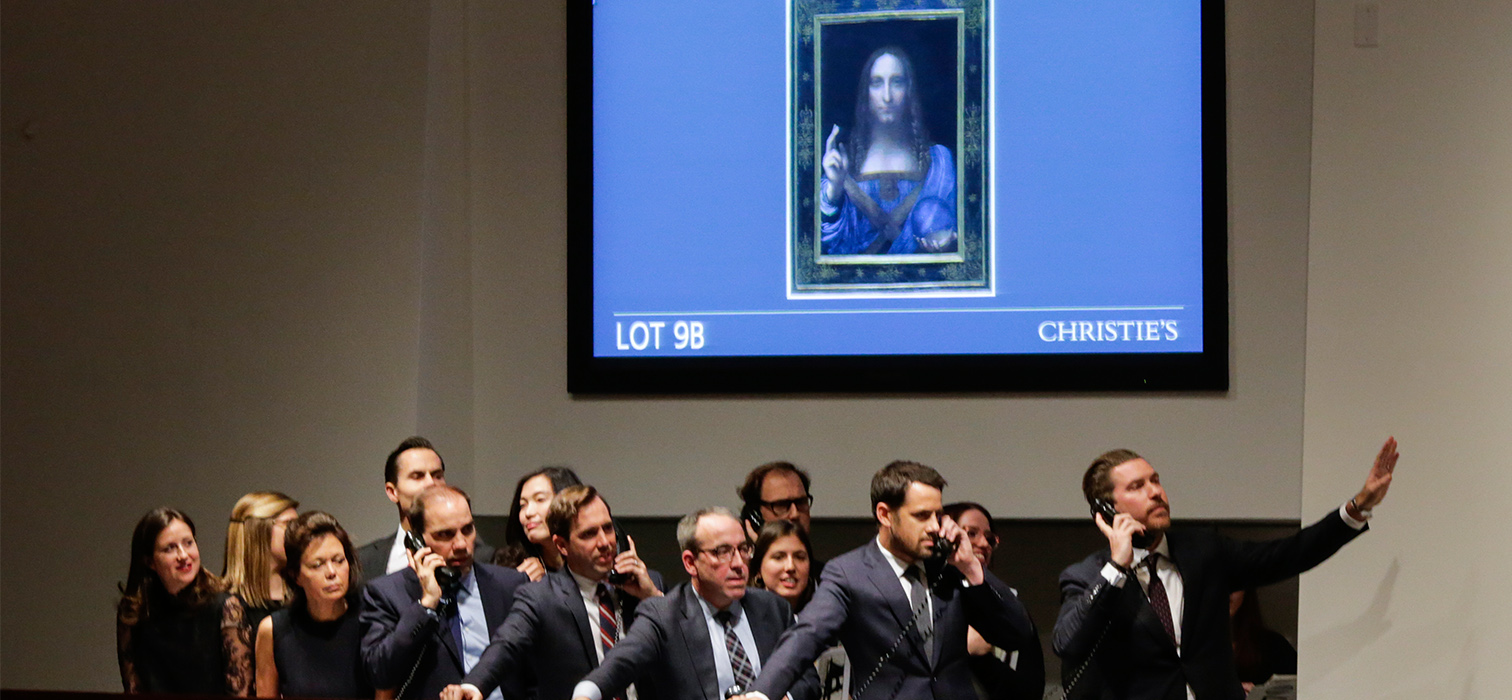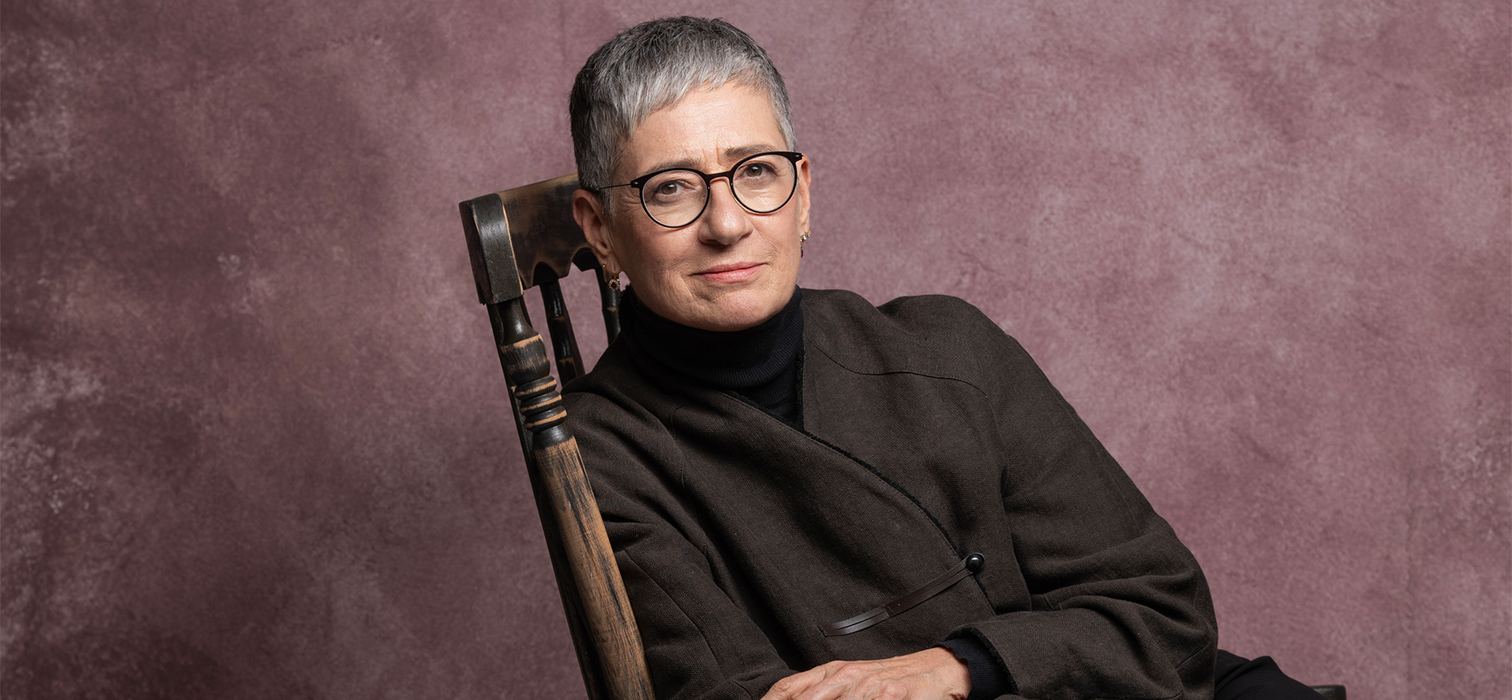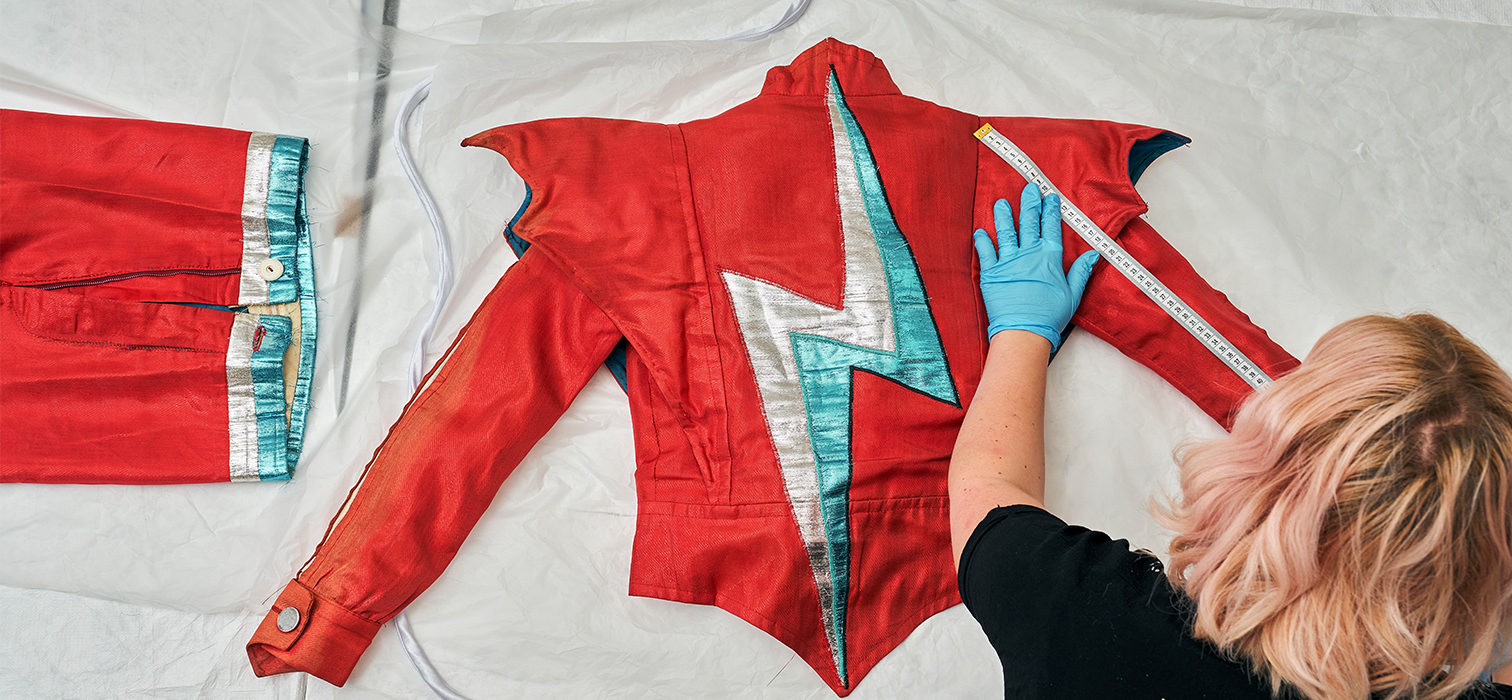An Exclusive Interview with Murat Cem Orhan

In a sunny day in Kanlıca, we met with the General Artistic Director of Cemal Reşit Rey Concert Hall, Murat Cem Orhan.
Murat Cem Orhan is only 43 years old, but his position is enormous. Inwardly, I proud when h says, “If America has Carnagie, we have Cemal Reşit Rey.” He hast not only been the creator of sold-out concert programs since the day he took office, but also he bring young musicians together with the masters of the business in academies that will make a difference in the lives of tomorrow’s professionals. As a composer, he is holding his breath and excited about new projects.
He is a manager who does justice to his challenging position, a maestro who multiplies his musical talent with his determination to push the limits, a musician who devotes the fruits of his creativity to adding value… More? There is much more… Let’s become one with music in his emotionally intense world.

I would like to start with your position. You are in a very symbolic position for both the city culture and the art world of our country. Considering the names that have passed through Cemal Reşit Rey until today, what is it like to be here?
Cemal Reşit Rey is like my home. Its emotional side is so intense. This is where I learned how to watch concerts and how to perform… Now, it is very satisfying to be in this position here and try to convey something back to the audience. Moreover, we train young people through the academies we open here. Last year, an 8-year-old student of ours took lessons from names like Turgay Erdener and Hasan Uçar and wrote his own composition. This is a great blessing. If that child composes a great oratorio 20 years later and says, “I took my first lessons at Cemal Reşit Rey”, what more could I want.
Cemal Reşit Rey is experiencing the busiest days of its history. What do you do here?
Besides concert programs, I have a goal. I try to take Turkish orchestras abroad. Every time I go abroad, I try to go with a Turkish composer. For example, we are going to Poland next year on April 11th with Mehmet Ali Sanlıkol. I do my best to spread the works of Turkish composers.
Last year I played Ferit Tüzün in Finland, and in Italy we gave a concert with the CRR Orchestra. The first half was works influenced by European composers such as “Abduction from the Palace”, and the second half was exclusively by Turkish composers. CRR went on tour for the first time in the history of the symphony after a long time. There are also three children’s plays I have composed. Sekeronya has been performed in the earthquake zone for a year and a half. I am happy if I can reach a child there with my notes. There are still many things I want to do. Believe me, we are still very closed. People still ask if there is a symphony orchestra in Turkey. Why? We are to blame. We can’t promote it.
“FAZIL SAY IS THE VOICE OF THIS LAND”
This is exactly what I wanted to ask. Before you, conductors had a Westernist approach both in their choice of works and composers. In popular parlance, this meant that they were far from the people. In your work, on the other hand, our national identity is at the forefront, and you are working to show this abroad. Isn’t this a conscious choice of path?
Of course it is. It would be impossible to live in such rich lands and ignore them. Troy is ours, Nemrut is ours… Therefore, it would be unfair not to take something out of such a great richness. Why should we look for inspiration in other cultures when we have Kemal Tahir and Nazım here. It is important for me to value the values of this land. It gives me pride to do this especially in my compositions. For example, my Kuva-yı Milliye Oratorio. If we can do this interview today, it is thanks to the spirit of that day, the fighters, the believers.
Are there any names you like in Turkey in this sense?
Of course, there is Fazıl Say. This is Fazıl’s greatest strength. He is the voice of this country. I think, this is what Mustafa Kemal wanted to do. He said, “Go, learn the technique and apply it to the values of this land.” There are very few oratorios as beautiful as Adnan Saygun’s Yunus Emre Oratorio. There are very few symphonies that reflect the texture of this land as much as Ulvi Cemal Erkin’s symphonies. We are a very interesting society. We don’t know the value of the past; we don’t keep archives. We don’t have proper records of our composers, we don’t have their notes, we don’t have their copyrights, we don’t have their editions.

Last year you gave a concert of Turkish Flute Concertos at Cemal Reşit Rey and I remember that the concert was recorded live.
Yes, the works of three generations such as Ekrem Zeki Ün, Turgay Erdener and Kamran İnce were played and recorded. In this way, our musicians all over the world can meet our composers and soloists.
We have countless musicians who have done great things but have never been heard of. With so much richness, we still have a long way to go, don’t we?
Of course, we need to produce much more and make our voices heard more. Long-term projects should be our beacon on this path. Decision-makers should give more space and opportunity to us, the practitioners and idea owners, and this will shorten the road to the result.
TURANDOT IS THE AIRBUSS OF OPERA REPERTOIRE
I want to go back to conducting. What is the biggest motivation of a conductor? Is it the reaction from the audience, the interaction with the orchestra or the satisfaction of being on stage?
The piece ends, I can’t look directly at the audience. The first thing I do is to look into the eyes of the musicians I spent those two hours with and walked that path with. If they are happy, I am very happy. The audience may not always be objective. In general, the symphonic texture itself is already magnificent and already impressive. But I look for the effect of what we are doing in the eyes of the musician. When I look into the eyes of the trumpeter, if he closes his eyes slightly and says, “It’s done,” then I return to the audience with a much greater peace of mind. Schumann has advice for young musicians. He says, “Make professionals like what you do.” If I can get professionals to like what I do, then I can go back to the audience happier.
Who was the hardest for you to get the audience to like your work?
The first professional concert of my career was very exciting. I gave my first concert with Fazıl Say, which is a very challenging process for a conductor. I cannot describe my stress until the first rehearsal. It’s the first time I’m in front of an orchestra and there is one of the world’s greatest musicians in front of me. Moreover, he is a giant name who has made music with hundreds of conductors such as Zubin Mehta, Paavo Jarvi, Christopher Eschenbach, Gianandrea Noseda.
Apart from that, I have another stressful memory. One day at Ankara Opera, Antonio Pirolli called me and said, “You will conduct Turandot”. Turandot is the Airbus of the opera repertoire. There are very few operas of that size in terms of volume. It is both long, intense and loaded. It has everything in it. Puccini’s last opera. “Maestro,” I said, “11 days, I can’t do it.” He said, “You’re very lucky because my teacher gave me 10 days” and left. It is very difficult for me to explain how I worked for those 11 days, what kind of stress I had to go through to make myself liked, to show that I could conduct the piece correctly and to convey myself to the orchestra and choristers. But it is also an indisputable fact that I learned a lot of thanks to this stress.
Your profession requires a long and arduous education and a continuous investment of labor. How much of this is training and how much is talent?
We have a saying; “You cannot teach conducting”. Technical knowledge is not enough. There are already many things you need to know about art. But more importantly, conducting is people management. You have at least 70 people in front of you. Getting 70 people to accept your ideas, getting them to walk with you on the same path, to the same goal, is not something that can be taught. You cannot dictate human relations to anyone. You can teach a musician how to hit the meter, but this is only the starting point. The point at which conducting ends is the moment you learn about human relations.
LIKE WATER, YOU WILL FIT INTO THE CONTAINER YOU ENTER, YOU WILL STAND FIRM LIKE MERCURY
You are managing so many human relationships and trying to do a creative job at the same time. And the frequency of this is not small. Isn’t it difficult to understand every musician and to explain your point?
You are always with different characters. You know the musicians in the fixed orchestras you work with, but sometimes we go to a new country every week and work with a new orchestra every time. In the last 10 days I have worked with three different orchestras in three different cities, which means 210 people. 210 people, each different from each other. Their playing style, perception or view of music is completely different. As a conductor, you have to be like water, you have to adapt to the container you are in, and you have to be as solid as mercury in order to convince them about your ideas. This is of course difficult.
Are these skills you’re talking about something that is honed over time?
Sure. The way I reacted as a 25-year-old musician and the way I react now at 43 are completely different. I think I’m getting more and more sculpted; I’m getting into a much smoother shape. Every concert is a learning experience for me. Bernstein also says, “A conductor is always a student”.
You determine how a piece will be played, what kind of story it will tell. What kind of work is required to cook that idea?
You need to have a very full basket when you appear in front of the orchestra. It is not enough to just say “We are playing Schumann’s 4th Symphony”. It gets stuck somewhere. When you understand why Schumann wrote this work, the historical processes of the period, where this work stands in the composer’s own life, it takes a completely different turn. Because the language of expression you call music is something that deepens the more general culture you put into it. The audience doesn’t know our working stages. After all, we may rehearse for 20 hours for that piece. But the audience comes, listens for two hours and leaves. The more we can mature the work in those 20 hours, the better we can present it. The audience also understands this and determines how deep the interpretation is through their instincts.
I guess you must do a lot of reading even before rehearsals…
Yes, of course. I skip that part because it’s very natural for me. For example, Turandot will be played. You don’t only learn music. Ancient mythology, the relationship between the Turks and China, why Puccini wrote this piece, how he wrote it, why he left it unfinished, what he did after he left it unfinished, did he really want to leave it unfinished or couldn’t write it, what kind of person was Alfano who completed the work, which forms and harmonic textures he touched… When you learn all these things, it becomes a whole for you. And when you get in front of the orchestra, the musicians start to react to you much more fully.
It is a fact that we are people of the intellectual world. I don’t mean that in a patronizing way, but our work requires it. Our work requires us to use more than our arm or lip muscles. Every musician in front of me is a conservatory graduate who has invested many years in their instrument. If I can bring their imagination to a certain point, then they respond to me sensually. This is a bit metaphysical because I can see it with my ears and hear it with my eyes.

I NEVER DREAMED I’D SING PAPAGENO IN BRUGGE
You graduated from Opera and Singing, but you wanted to be a jazz pianist. What was your dream?
I had a dream of becoming a jazz pianist, yes. My idol was Herbie Hancock. I was 18 when I went to the conservatory and they told me, “You can’t be a jazz pianist after this time.” According to that curriculum, you have to start when you are 11 or 12. They said, “Go to the singing department, you can play the piano there.” However, I had never opened my mouth until that day. But I was a lucky child. My mother used to take me to operas and symphony concerts when I was little. We had a music teacher at Saint Joseph High School, and he used to say, “If you go to the opera three times, I will give you 100.” That’s how I got acquainted with opera, but I had no idea about performance. Moreover, I didn’t like singing. I took three lessons and somehow I won. Since I knew French, it was easy for me to grasp Italian and learn the pieces. After I started singing, I loved opera very much.
After a while, jazz music started to sound like virtuosity music to me. I’m not saying it is, it just felt like that at the time. Classical music, on the other hand, started to pull me deeper. I found myself in the vortex. And in that maelstrom, I discovered that I had some musical ideas. I discovered that I could compose. At the age of 15, without knowing it, I had done everything that someone who wanted to be a conductor should do. Playing the piano, studying classical music in depth and trying to compose. I guess when you fall in love with something, life makes you bear fruit. I never imagined that one day I would be singing Papageno in Bruges and about 15 leading roles in various big and small places in New York. I won competitions as a singer, but I was always with pen and paper, trying to write string quartets or piano sonatas, composing arias. I found myself on a strange path.
And this happened when you were only in your 20s?
Yes. When I was 23, I came to Istanbul from Izmir, started graduate school, and when I finished, I went to America and studied at Brooklyn College of Music. I was studying singing, singing in private opera houses. Most singers only study their own lines. I was practicing from the conductor’s score. I was doing it out of curiosity. I became a conductor out of curiosity. When I was not limited to the singing line but practiced in general, this was the result. There are countless parameters that create the beauty of music, and I want to look at that big puzzle. I don’t want to be a piece of the puzzle. All of this was motivational, of course.

WHAT I FELT IN THE FIRST AFERIN IS THE SAME TODAY
You started composing at a very early age, didn’t you?
There are compositions and string arrangements I made at the end of high school. It sounds very romantic now, of course. My first serious composition work started with Ilyas Mirzayev after I returned from America. I took composition lessons from him and participated in the Dr. Nejat Eczacıbaşı National Composition Competition. The jury includes names like Rengim Gökmen, Gürer Aykal, Turgay Aydıner. The jury is like a fortress.
The concept is a ballet suite. So, I took out the ballet sequences of Kuyucaklı Yusuf, that is, I wrote what this book would be like if it were a ballet, and I composed it as a three-part suite. I won first place. I was very surprised. I didn’t think I deserved it. I thought the second piece was better. But of course, I was also motivated. In the next competition, this time the concept was aria. When I was awarded first prize in two branches that I knew very well, I decided to write more music. I composed Kuvayi Milliye, followed by Ölmeme Günü and then the arias…
Behind all this is a 15–16-year-old boy who was captivated by music. Has your perspective on music changed over the years?
It’s very interesting, but I feel the same way I felt when I was 15. There is no change. I sit at the piano with the same excitement. When I can do something, I pick up the phone and tell them with the same childlike joy. When an applause comes, I am happy like a child. I started playing the piano when I was 8 years old, the way I felt at the first “Well done” is the same today.
For a while now, we have been seeing you in CRR with your works and concerts. Have you left your composer identity behind?
I continue to play my compositions, but I took a break from composing due to the intensity of CRR in its own flow.
Do you miss it?
Longing causes accumulation so that one day I will surely express it and it will be beautiful. Don’t think that because I don’t sing them, they don’t revolve in my brain. There are one or two very nice projects. In fact, even though I don’t pick up a pen and paper, I spend a significant part of my day thinking about it. This “daydreaming” is an important part of composing. You sit and look at the void. And what happens at the moment you look at that emptiness. And I always keep it warm.
Where is the top point for you?
I think the pinnacle of my work will be the universalization of my art, living longer than my body.




